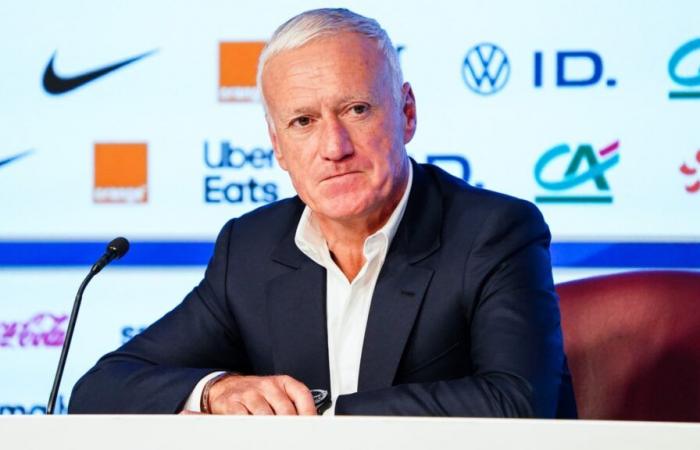Didier Deschamps did not call Kylian Mbappé for the French team’s next matches against Israel and Italy in the Nations League. The Blues coach assures that it is his choice, specifying that the Real Madrid striker wanted to be part of this gathering.
Didier Deschamps communicated this Thursday the list of players from the France team summoned to face Israel (November 14 at the Stade de France) and Italy (November 17 in Milan) in the Nations League. A group in which Kylian Mbappé does not appear. The captain of the Blues, already absent during the last gathering in October, is not injured. Questioned on this subject, the coach gave his explanations at a press conference.
“I had several discussions with him and I made this decision on this gathering, because I think it’s better like that,” replied Deschamps. “I’m not going to argue. What I can tell you is two things. One: Kylian wanted to come. Two: it’s not the extra-sporting problems that come into play, from the moment the presumption of innocence exists (Mbappé would be the target of a complaint for rape in Sweden, according to the local press, Editor’s note). So it is a choice, which, I repeat, is punctual, for the two matches which await us.
“I had discussions with him”
Despite his desire not to dwell too much on the non-summoning of Kylian Mbappé, Didier Deschamps was obviously relaunched on the subject: “I know that it will bounce back, but I am not going to tell you more, for the simple and good reason that we have a training course with two matches with a course that I had set and which I also remain on, which is important, namely to give playing time and to distribute it, to young people who have less. experience and who, through the last rally, gave a lot of satisfaction. That’s why they come back today And then, we must not forget, there is a dynamic too. We must ensure our qualification for the final 8 and be able to play for first place.”
“I tell you again, it’s my decision, because it’s better that way,” insisted DD, once again questioned on the question. “I can understand that that’s not enough for you. But I’m not going to get into an argument that leads to interpretations. So there you have it, I don’t want to tell you any more. I take responsibility for that decision (…) I I have had discussions with him. I’m not going to go into that. Afterwards, you may or may not have information that we communicate to you. . I exchange and then, It’s my responsibility to make decisions. I made this one, at this gathering, because I think it’s better that way.”






